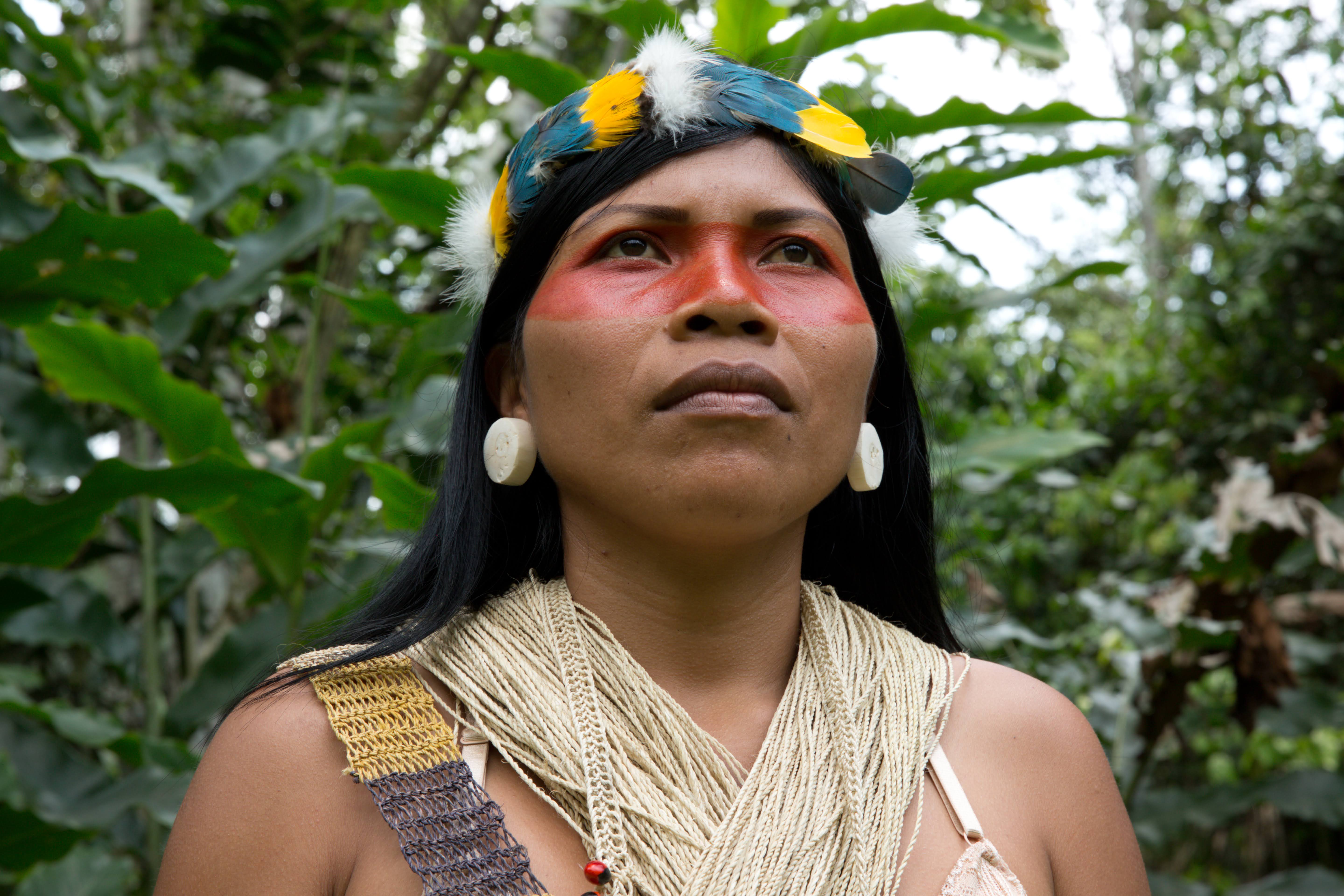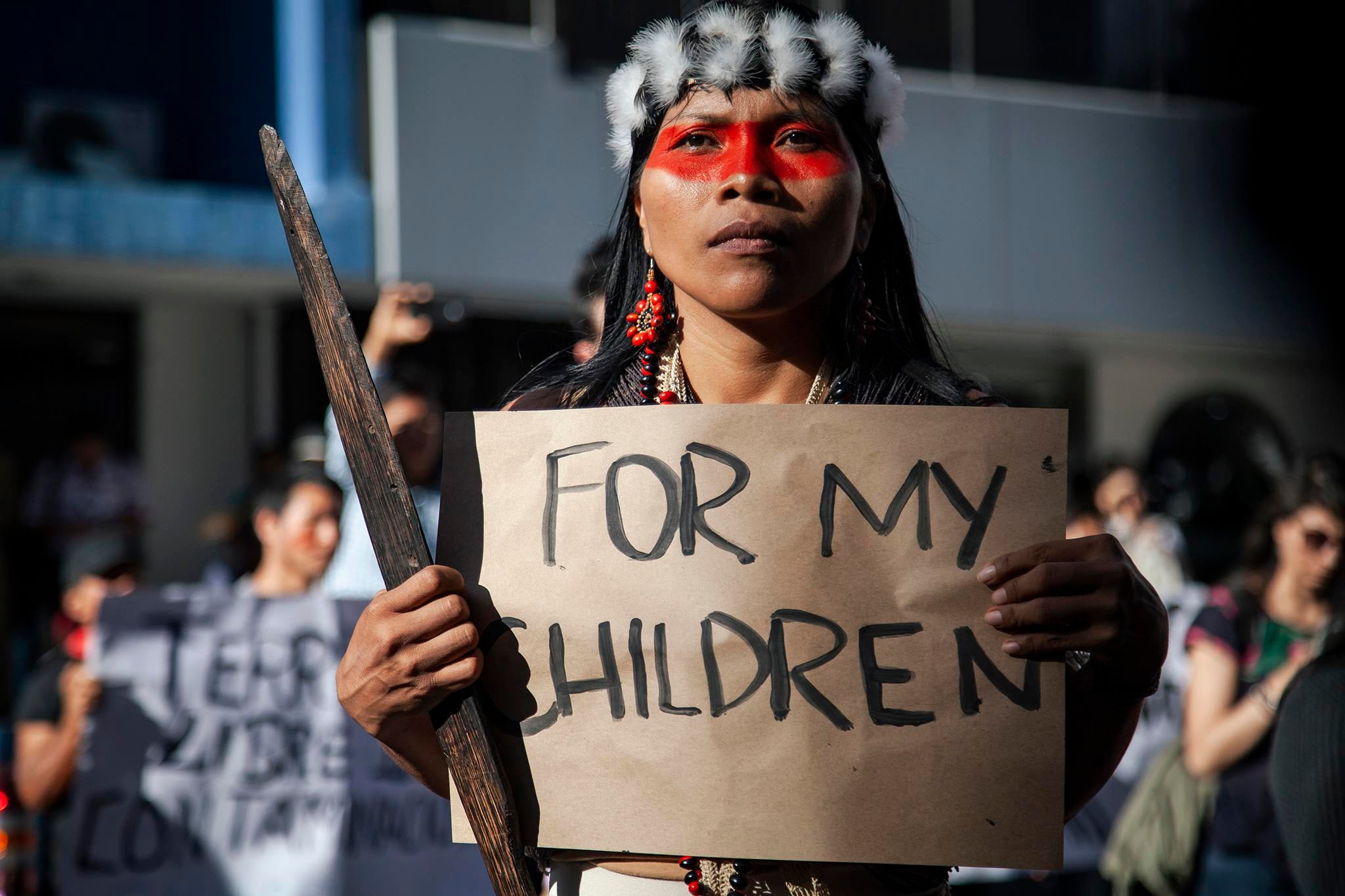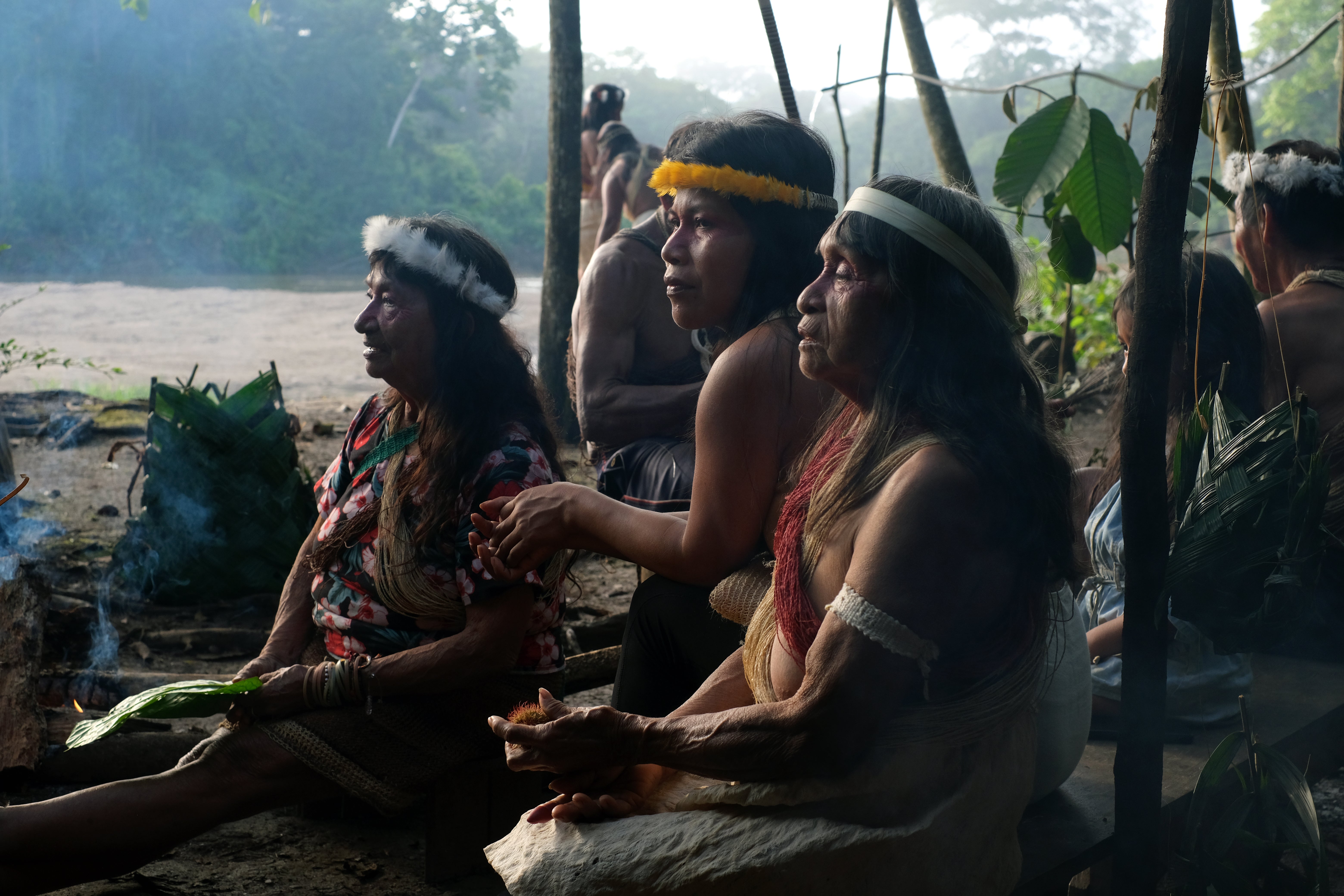The Climate 100 List: Nemonte Nenquimo, the warrior protecting huge swathes of Amazon rainforest from drilling
After co-founding the Ceibo Alliance and Amazon Frontline, Nemonte and her partner, Mitch Anderson, have won a landmark case against the government, which is now under threat again from being overturned

Your support helps us to tell the story
From reproductive rights to climate change to Big Tech, The Independent is on the ground when the story is developing. Whether it's investigating the financials of Elon Musk's pro-Trump PAC or producing our latest documentary, 'The A Word', which shines a light on the American women fighting for reproductive rights, we know how important it is to parse out the facts from the messaging.
At such a critical moment in US history, we need reporters on the ground. Your donation allows us to keep sending journalists to speak to both sides of the story.
The Independent is trusted by Americans across the entire political spectrum. And unlike many other quality news outlets, we choose not to lock Americans out of our reporting and analysis with paywalls. We believe quality journalism should be available to everyone, paid for by those who can afford it.
Your support makes all the difference.“I’ve often thought that it must be easy to destroy what you don’t understand,” says Nemonte Nenquimo, the first woman president of the Waorani people of Pastaza, in eastern Ecuador. She's also the co-founder of two non-profit organisations, the Indigenous-led Ceibo Alliance and Amazon Frontlines, which both work to protect the rights and lives of Indigenous people against the ever-present threat of the climate crisis.
”I thought, perhaps if the outsiders understood a bit more about our lives in the Amazon rainforest, they’d stop trying to cut it down, burn it, or poison it,” she says.
Nenquimo is explaining why, considering the traditional oral history of her community, she's written a book. Co-authored with her American partner Mitch Anderson, it was published in June and entitled We Will Not Be Saved, which rejects the idea that Indigenous people need “saving”.
The memoir is a beautiful depiction of growing up in her village, set deep within the biodiverse Amazonian rainforest, from her first memories of her nomadic hunter-gatherer tribe and playing with her siblings, up to how she became the activist she is today.
Writing the book was a way of putting it all down into one place, for the world to understand the true extent of devastation that's taken place – and continues to – through a personable narrative in the hope of the destruction coming to an end. “We are all facing a global climate crisis: perhaps if people in the industrialised world understood something about the richness, complexity and beauty of our lives in the forest, they’d do something to protect the forest and stop burning so much fossil fuel,” she says.
Nenquimo's tone is one of emergency too. “Scientists say the Amazon is approaching a tipping point from which it could never recover. My parents know that the climate is wounded because it is now almost impossible to find beehives high up on the kapok trees. The forest is wounded.”

For Nenquimo, being a Waorani leader is not only a huge honour, but also a big responsibility that weighs heavily on her shoulders. “I must listen to, care for and fight for my people, our culture and our territories. Above all, I feel responsible to the children and the future generations: they deserve to grow up and be able to choose to live their lives in the same forest I grew up in if that is their wish.”
It's a responsibility that Nenquimo has not taken lightly. Since 2013, she has been defending indigenous rights and lands against extractive industries in the Amazon, becoming a world-leading voice. She has seen first-hand the effects of the climate crisis following the destruction of the Amazon.
Her most momentous achievement came in 2019, when Nenquimo played a pivotal part in winning a case against the Ecuadorian government, protecting half a million acres of Waorani ancestral land in the Amazonian rainforest from oil drilling. It set a landmark legal precedent to protect a further seven million acres from planned oil auctions.
When Nenquimo found out they'd won, she says: “We sang! We sang, danced and shouted in the streets!” Though her dedication to the cause continued as strongly as ever as the next day she went back to her territory “to keep organising and strengthening our communities… as long as the world continues to consume beyond its means, our homes are in danger.”
And it's true as Nenquimo, 39, has seen her home village change drastically even within her lifetime. The world Nenquimo grew up in has constantly been under threat, which she extensively documents in her book. She depicts the early beginnings of the arrival of white people, known as cowori, who came in search of “black gold” within the Waorani land. Nenquimo remembers how they first brought Coca-Cola and sweets, then disease, before destroying their lands. “This is why we are fighting: so that our children and our grandchildren can grow up in the Amazon rainforest,” she says.
Now Nenquimo's work to protect the Amazon in Ecuador is intensifying because the president, Daniel Noboa, who was elected last November, is threatening to roll back on the 2019 case.
“Noboa is planning to auction off Indigenous territories in the Amazon to oil companies, based on the very consultations that were invalidated in the 2019 court decision,” says Nenquimo.

To prevent this happening, she explains they plan to “take the government back to court to make sure these contracts do not move forward. And again we will need resources and international actions and solidarity to help us defend our homes”.
Noboa shows little sign of moving towards signing the fossil fuel non-proliferation treaty, which aims to prevent the expansion of fossil fuel exploitation, as well as see a just transition to clean energy, which Nenquimo says Noboa has shown that he “cannot be trusted to keep his word”.
If further oil drilling did go ahead, it would result in mass devastation. Nenquimo says: “It would be a death sentence for Waorani culture and territory. It would mean ecocide. It would mean pushing the planet’s climate – and with it life as we know it – over a tipping point.”
The Independent will be revealing its Climate100 List in September and hosting an event in New York, which can be attended online, to reserve your place click here
Join our commenting forum
Join thought-provoking conversations, follow other Independent readers and see their replies
Comments